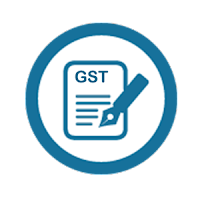We
at Dhody & Associates compromising of four partner’s viz. CA Rakesh
Dhody, CA Rajinder Chadha, CA Anil Jain and CA Sanjeev Kumar which is
existence since past 29 years have put together a dedicated team of
professionals who can help businesses transition to the GST regime in an
integrated manner. The key differentiator we bring on board is our
three-phased, unified-yet-modular approach (fiscal, supply chain and IT
modules) which helps preserve value through a robust implementation methodology
for the impacted functions, backed by efficient programme and change
management principles, in three phases as
illustrated
below:
5.1
GST impact assessment (Tax/Supply chain/IT) services
· Assessing the potential GST impact on different business
functions and operations, in order to be better prepared for the transition,
including quantification of impact on pricing, incentives, profitability,
topline and cash flows.
· Reviewing the impact of GST on the current value chain
elements (e.g. procurement, manufacturing and distribution) and proposing options
for the realignment of the business model to help better capture the
additional value that may be available on account of GST.
· Reviewing the existing ERP system for technical compatibility,
coverage of business processes,
configuration
of the localisation settings and impact of GST on the current business
scenarios (e.g.
procurement,
sales and distribution).
5.2
Representation assistance
· Identifying obstacles being faced by the company under the
existing regime.
· Highlighting the likely GST provisions which could be
detrimental to the business of a company.
· Suggesting the strategy around the representation.
· Assisting in finalising the representation.
· Assistance in time-to-time meetings and follow up.
5.3
Revalidation and fine tuning assistance
· Revalidating the
impact analysis of GST, after the draft GST legislation is available in the
public domain.
· Identifying potential business approaches in order to help
manage tax costs and mitigate any adverse
impact.
5.4
Implementation assistance
· Realigning the ‘target operating model’ to help ensure smooth
functioning of the selected operating
model
option.
· User Acceptance Testing (UAT) of IT systems. Reorganising
business processes. Providing assistance
in
finalisation of the implementation plan for the company. Providing assistance
on transition-related
provisions.
Reviewing vendor/customer communication. Assisting in preparing GST manuals
for easy
reference.
· Implementing the revised IT landscape by integrating testing
sign off for GST changes, executing the
transaction
on production system (go-Live) and finalising the configuration documents of
the changes
undertaken.
|
5.5
Post-implementation assistance
· Assist in preparing instruction manuals, including providing
assistance in framing systems and
procedures
to ensure compliances and helping in dealing with transitional issues such as
assistance in
understanding
the transitional provisions, helping in devising the approach for transition
of existing
contracts
under the new regime and helping in identifying the requisite changes,
computation of taxes
and
filing of returns under the GST regime, etc.
· Assisting in the communication to be sent to key vendors/customers
by the company, highlighting
changes
in the taxation regime and the consequent impact on transactions.
5.6
Project management services
· Undertaking detailed planning of activities in co-ordination
with various work streams.
· Tracking the progress of various work streams. Identifying key
milestones, dependencies and helping
ensure
smooth execution. Identifying issues during execution and suggesting
mitigation plans. Helping
ensure
effective communication/co-ordination amongst stakeholders.
· Support in terms of developing
training materials and training the trainers.
5.7
Customised training
· Organising trainings for senior management on strategic and
critical areas of GST’s impact on
the
company’s business model, impact on the bottom-line, and on how to reduce tax
risks.
· Conducting workshops for operational staff on procedural
mechanisms, documentation requirements,
control
checks on data/information, etc.
· Training dealers on the applicability of GST, its impact on
them and measures to help ensure
compliance.
5.8
Compliance reviews/outsourcing
· Providing assistance to the tax team in reviewing the
documents to be filed with the tax authorities
such
as registration applications, transition stock statements, credit transition
documents, etc.
· Advising on the base upon which goods and services can be
valued for payment of GST. Reviewing
sample
invoices and credit/debit note formats to be maintained under the new tax
regime as prepared
by
the company and providing comments thereon from a GST perspective. Reviewing
the records that
need
to be maintained by the company under the new tax regime. Reviewing GST
returns to be filed by
the
company.
· Assisting with GST compliance on an on-going basis.
5.9
Deputation (Loan staff)
· Seconding GST-trained staff to help handle the tax processes
on a long-term or assignment basis.
· Seconding GST-trained managers to
provide high-level support to the tax functions.
|
